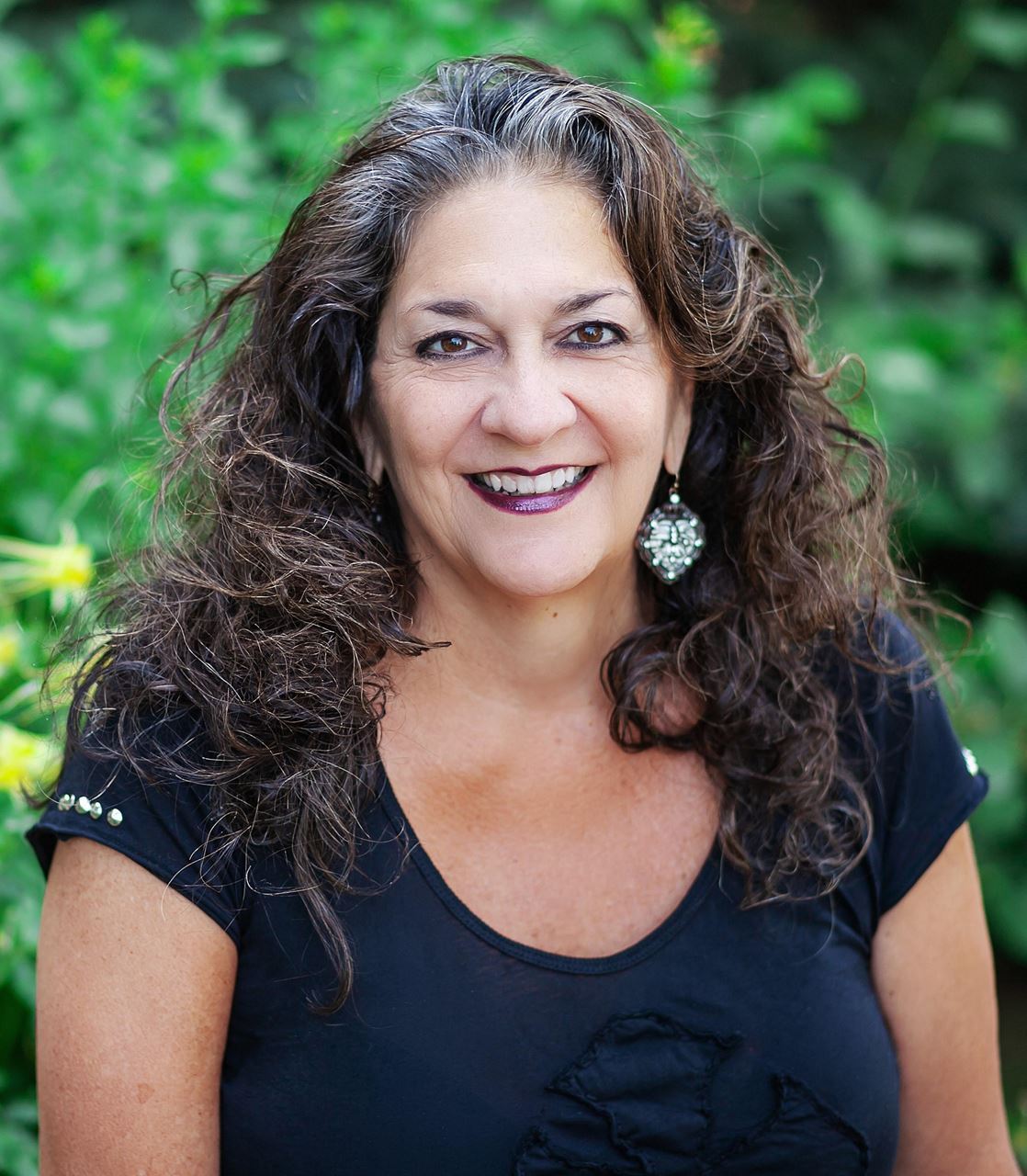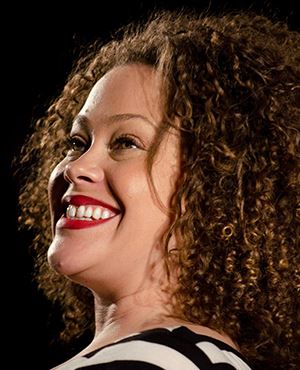Editor’s note: This is the second in a series of interviews with students who have completed the TLA Foundations Certificate.* Answers may be slightly edited for space and clarity.
Walking with people through writing experiences isn’t simply a responsibility, it’s a calling, and a sacred one.
Tracie Nichols, M.A. writes poetry and facilitates writing groups from her small desk under the wide reach of two venerable Sycamore trees in southeastern Pennsylvania. She’s a Transformative Language Artist in process, fascinated by the potential of language to heal and transform people and communities. Putting her master’s degree in Transformative Learning and Change to good use over the past two decades, Tracie has designed and facilitated many virtual and in-person lifelong learning experiences on a truly wide range of topics. She’s just beginning her foray into submitting poetry for publication and has already accumulated a healthy pile of rejections to her few joyfully celebrated acceptances.
Why did you originally apply for the TLA Foundations certificate?
Tracie Nichols: One ordinary Tuesday in January 2020 a writer friend mentioned an organization with great writing classes called the Transformative Language Arts Network. Being a perpetually curious lover of words, I found the website and started excavating. As I explored, I realized that the Transformative Language Arts bring together two foundational foci of my life: my master’s degree in Transformative Learning and Change, and my deep love of writing—especially its power to cultivate understanding and catalyze change. Within days I registered for “Changing the World With Words” and within the first few weeks recognized that I’d found a community of practice where I fit.
The timing of this recognition collided with my 58th birthday and the milestone of having been in practice as a life and business coach for nearly a decade. Through the preceding winter, I’d had a sense that a pivot was coming in both my life and work. The TLA Foundations certificate process offered me a way to continue exploring both the intersections between Transformative Learning and Transformative Language Arts and the possibilities for making language the focus of this next piece of my body of work. It also connected me with an extraordinary community of artists and facilitators who continue to influence and inspire me.
What TLAN courses did you find most useful and why?
I have found every TLAN course helpful in its own way. Among the courses specific to earning the certificate, I found “Changing the World With Words” the most useful because it grounded me so well into the concepts and the community. I felt oriented and able to navigate ensuing courses with ease. I loved “The Art of Facilitation” and only found it marginally less useful because, by the time I took the course, I had nearly 20 years of experience with facilitating formal and informal group learning experiences. The course that changed me, that radically shifted my perception of myself and my capacities as a word artist and change maker, was “& They Call Us Crazy” [with Caits Meissner]. I almost didn’t enroll because it felt like such a giant step outside my comfort zone. That stretch was what taught me the most, of course.
What was your greatest learning(s) from the process?
I learned – viscerally, not just theoretically – that people in all kinds of struggle can use language arts to plant their staff, push outward, and redraw the terrain that is their birthright. They can take up the space that was denied them by terror, trauma, social and cultural oppression, becoming creative forces for change in their own lives and communities.
Is there a particular experience at a conference or in a class, etc. that stands out for you?
Two experiences stand out:
During “& They Call Us Crazy” I learned that I had wrapped my poetic self in a very tiny, tidy package, afraid if I tested my edges, I’d lose the voice I’d spent a decade excavating. I spent the next five weeks repeatedly testing and disproving that assumption, surprising myself with the intensity and candor of my own writing. This was an incredibly affirming experience.
During the pre-conference panel discussion at the 2021 Power of Words Conference, Joy Harjo invited us to “move with honor and integrity” and a bit later in the conversation said something like, the power doesn’t belong to us—it was given to us to take care of and share. She reminded me that walking with people through writing experiences isn’t simply a responsibility, it’s a calling, and a sacred one. My ears are still metaphorically ringing from that wake-up call.
What are you doing now (or hoping to do) in TLA and in what way was the certificate helpful?
The certificate process helped me define myself as an artist and as a facilitator by encouraging me to reclaim myself as a poet and as a midwife of words, both mine and other people’s. It reminded me that writing is an exquisitely powerful wayfinding tool in anyone’s hands.
I have pivoted my business and now offer classes and writing circles centered on personal transformation and cultivating resilience. Though I welcome anyone, an interesting mix of women counselors, coaches, wellness practitioners and artists seem to gravitate to my offerings these days.
Would you recommend the certification course to others?
Absolutely, yes. For all of the reasons I’ve mentioned above.
Learn more at tracienichols.com, or connect with her on Instagram at @tracietnichols (https://www.instagram.com/tracietnichols/).
*TLA Foundations (TLAF) is an introduction to TLA in theory and practice with opportunities for reflecting and acting on ethical work, community networking, and TLA in action, completed on one’s own time over two years. Applications accepted on a rolling basis. More details can be found here.




 Do you want to learn more about facilitating workshops, meetings, collaborations, or coaching sessions? Come join Caryn Mirriam-Goldberg and Joy Roulier Sawyer for
Do you want to learn more about facilitating workshops, meetings, collaborations, or coaching sessions? Come join Caryn Mirriam-Goldberg and Joy Roulier Sawyer for 





 Joy Roulier Sawyer and Caryn Mirriam-Goldberg’s new class,
Joy Roulier Sawyer and Caryn Mirriam-Goldberg’s new class,  Caryn Mirriam-Goldberg Ph.D.,
Caryn Mirriam-Goldberg Ph.D.,
 Katt Lissard is artistic director and co-founder of
Katt Lissard is artistic director and co-founder of  Caleb Winebrenner is a storyteller, poet, and educator. He holds an MA in Educational Theatre. At both the high school and college levels, he crafts his classes to be engaging events for everyone. Caleb has been a member of the TLA Network Council for several years, and he is chair of the 2019 and 2020 Power of Words conference. He will address how to facilitate and teach for different learning styles and accommodating special needs, speaking both as an educator and from his own experiences of living with cerebral palsy.
Caleb Winebrenner is a storyteller, poet, and educator. He holds an MA in Educational Theatre. At both the high school and college levels, he crafts his classes to be engaging events for everyone. Caleb has been a member of the TLA Network Council for several years, and he is chair of the 2019 and 2020 Power of Words conference. He will address how to facilitate and teach for different learning styles and accommodating special needs, speaking both as an educator and from his own experiences of living with cerebral palsy.

 Joy plans to bring what she’s learned from years of such facilitation into the online class she is developing with Caryn so that others called to lead such groups and work one-on-one with emerging writers and storytellers, change-makers and seekers, can find more of the tools they need.
Joy plans to bring what she’s learned from years of such facilitation into the online class she is developing with Caryn so that others called to lead such groups and work one-on-one with emerging writers and storytellers, change-makers and seekers, can find more of the tools they need.